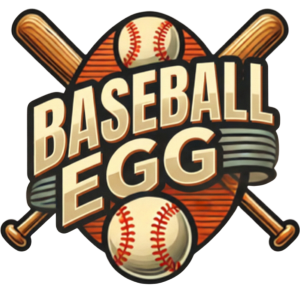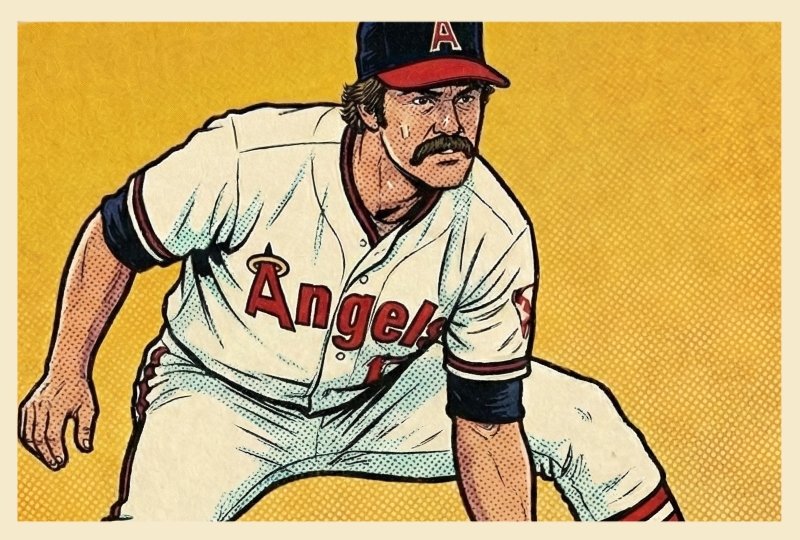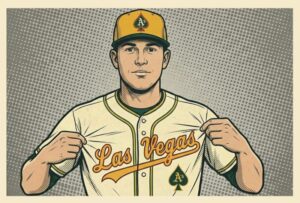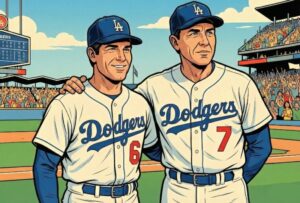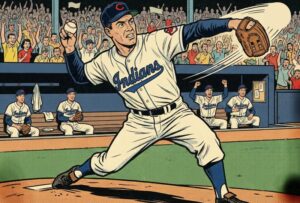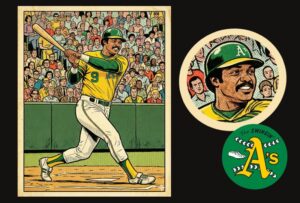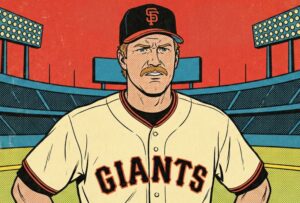Every baseball fan has an opinion about who should be in the Hall of Fame. The debates can be fun and heated. Here’s a team of the the best players at each position who are still not in the Hall of Fame, but in this writer’s opinion, should be.
Starting Pitcher: Jack Morris
No starting pitcher who started his career after 1970 and before 1986 has been elected to the Hall of Fame. If every era deserves to have their best players elected, Morris is a no-brainer as the pitcher of the 1980s. His detractors point out that his ERA would be the highest of any pitcher in the Hall, but anyone who saw Morris pitch knows he was an amazing competitor and a winner: the workhorse of his era. He was the ace of three pennant-winning teams and was instrumental in three World Series victories: 1984, 1991, and 1992.
UPDATE: Morris was elected via the Hall of Fame eras committee in 2017.
Another one for the Hall: Wes Ferrell
Relief Pitcher: Dan Quisenberry
If Koufax can be in the Hall for essentially six seasons as a starting pitcher, Quiz should make it for his six years as a closer. From 1980-1985 he led all of baseball in saves, won five save titles, finished in the top five in Cy Young voting five of the six seasons, and pitched about 70 games per season (discounting the 1981 strike year). He was the absolute best closer in baseball and he helped the Royals to two pennants and four playoff appearances during that amazing six-year stretch of dominance. His adjusted ERA of 146 is among the best ever for a reliever. In his one year on the HOF ballot, Quiz failed to receive enough votes to stay on. In contrast, Bruce Sutter was eventually elected based on fewer top seasons. In his prime, Quiz was a better closer than Sutter, and his prime was longer than Sutter’s. Nothing against Sutter, who deserved to be inducted, but Quisenberry is deserving of a plaque as well. He died in 1998, which hurts his chances because the HOF committee likes to elect guys who are alive.
Another one for the Hall: Lee Smith
Catcher: Bill Freehan
The catching ranks in Cooperstown are probably the most varied in skill of all the positions. There’s an entire universe that separates Johnny Bench and Yogi Berra from Rick Ferrell, Ernie Lombardi, and Ray Schalk. In the 1960s, when offensive numbers were miserable, Freehan was the best hitting catcher in baseball six out of 10 seasons, and was in the top three every year. He was the best defensive catcher in the American League nearly every year he played. This guy was a rock behind the plate and he had an accurate throwing arm that was feared by baserunners. Certainly no one of his era was any better at this demanding position, and Freehan did it for about 15 years. He was easily a better player than Ferrell, Schalk, Lombardi, and Buck Ewing. He’s comparable to Gary Carter, who just played a few more years but who’s batting stats are not really much better when adjusted for era. Freehan doesn’t have a snowball’s chance in hell of getting to Cooperstown, but he was a great catcher and should be there.
Another one for the Hall: Ted Simmons
First Baseman: Dick Allen
It’s looking increasingly like he will never get into the Hall, but Dick Allen was a stud. For about 5-6 years he was as great a hitter as anyone in the game. That includes contemporaries like Willie McCovey, Carl Yastrzemski, Harmon Killebrew, Johnny Bench, and Reggie Jackson. Allen could run and he wasn’t just a slugger, he hit for average too. It just didn’t look like it because the batting averages in his era were 20-30% deflated. A .290 season in 1966 was like a .325 mark in the early 1980s. Had he played in the 1990s, Allen could have put up Manny Ramirez numbers. He was that good, and he was clean. Of course, his being perceived as a prick doesn’t help his chances, but the veterans committee shouldn’t take that into account. I mean, Bob Gibson and Jim Bunning are in.
Another one for the Hall: Gil Hodges
Second Baseman: Bobby Grich
Based on his peak value, Grich is the best second baseman not in the Hall. Lou Whitaker could just as easily be in this spot based on his career value. Grich was an incredible defensive second baseman, leading the league in putouts four times, assists three times, and range four times. He won a Gold Glove Award four times, and probably should have won many more. At the plate, Grich did a lot of things that don’t show up on the back of a baseball card: like drawing walks and hitting for extra-bases. He hit .300 once and drove in 100 runs once, but his prime was in the 1970s and early 1980s, when runs were scored less frequently than they were when Jeff Kent was putting up insane numbers for a second baseman in the 1990s. Grich did receive MVP votes in five different seasons, which is indicative of how well respected he was in his time. Grich’s career WAR of 67.6 is higher than that of Ryne Sandberg, Roberto Alomar, and Craig Biggio. He’ll never be elected because he wasn’t sexy enough, but if a future Veterans Committee wants to make a wise gesture, they’ll elect this underrated and overlooked star.
Another one for the Hall: Lou Whitaker
Shortstop: Alan Trammell
The other half of the Tigers long-standing double play duo with Whitaker, Trammell is just as deserving of a Cooperstown plaque as Sweet Lou. The “problem” with Trammell is that he did everything very well, but not great or flashy. Want hitting? He hit .300 seven times and he was a cleanup hitter when he was asked to do that, hitting .343 with an MVP-like season in ’87 (he should have won that award, but that’s another story). Want fielding? Trammell won several Gold Gloves and was the type of player who seemed perfectly positioned for every hitter and every ground ball. Want running? He swiped as many as 30 bases in a season with highs success rate. Want clutch? Trammell hit .417 with seven homers and 20 RBI in the last month of the ’87 season as Detroit won the division title in thrilling fashion; he was also the MVP of the ’84 World Series. Trammell was a far superior offensive player to Ozzie Smith, and the difference in their defensive game wasn’t so great that it tips the balance to the Wizard. As one baseball lifer who was coaching in the 1980s said, “No one would have traded Trammell straight up for Ozzie in their primes, nobody.”
UPDATE: Trammell was elected via the Hall of Fame eras committee in 2017.
Another one for the Hall: Dave Concepcion
Third Baseman: Graig Nettles
After the decline and retirement of Brooks Robinson, the void for great third basemen was filled ably by Mike Schmidt and George Brett. Nettles was their contemporary, and he doesn’t match up with those legends, but he was great enough on his own to deserve to be enshrined in Cooperstown. Nettles was an amazing defensive third baseman, the best in the American League for about 7-8 years, and he showed that off famously in the 1977 World Series. He also had great power, popping 390 homers and leading the AL in that category: he and ARod are the only third basemen to lead the AL in homers in the last 40 years. Like Grich, Nettles didn’t hit for high average or reach a lot of magical statistical milestones season-after-season. He just kept plugging away hitting 20-30 homers and driving in 75-95 runs every year while playing Gold Glove defense. And he was a winner: he played on five pennant-winners with the Yankees and Padres. He certainly wouldn’t be the worst third baseman in the HOF.
Another one for the Hall: Ken Boyer
Left Fielder: Tim Raines
One of the greatest leadoff hitters in baseball history – period. It’s perplexing that Raines hasn’t received more support yet on the Hall of Fame ballot. In his prime, which lasted for a long time, Raines was Rickey Henderson-lite: getting on base, stealing tons of bases, and scoring runs. Raines was actually a better hitter than Henderson, averaging nearly .300 for his career and winning a batting title. He swiped over 800 bases and scored over 1,500 runs. There really wasn’t much else he could have done to prove how great he was.
UPDATE: Raines was finally elected to the Hall of Fame by the BBWAA in 2017.
Another one for the Hall: Lefty O’Doul
Center Fielder: Dale Murphy
A two-time MVP, Murrphy’s best argument is his peak value. From 1982-1987, he averaged .289, 36 homers, 105 RBI, 110 runs scored, and 18 steals. During those six seasons he won five Gold Gloves in center field and was almost universally acclaimed as the most complete player in baseball. Unfortunately, in his non-peak seasons he hit for low averages and struck out a lot. But so did Reggie Jackson. Murphy only got one chance to play in the post-season, in just three games in 1982. His OPS (.815) and OPS+ (121) compare favorably to Kirby Puckett, but Puckett hit for high average, which turns voters heads. Murphy continues to pop up on the occasional HOF ballot, but unlike Jim Rice, a comparable slugger from the same era (who wasn’t close to being the complete player Murph was), he’s a long shot for election.
Another one for the Hall: Kenny Lofton
Right Fielder: Reggie Smith
This talented outfielder really had two careers: he was a young five-tool star for the Boston Red Sox, and then later he was a slugger for the Los Angeles Dodgers. In both incarnations, Reggie was a great player. He hit .300 seven times, and like a few others on this list, he would have been a consistent .320 hitter in an era where offense wasn’t deflated. He was a speedy center fielder early in his career, and one of the best baserunners in the game. Later he played right field and didn’t steal as much. He walked a good amount and avoided things like grounding into double plays and making costly mistakes in the field. He hit over 300 home runs and was an important part of three pennant-winning teams.
Another one for the Hall: Larry Walker
